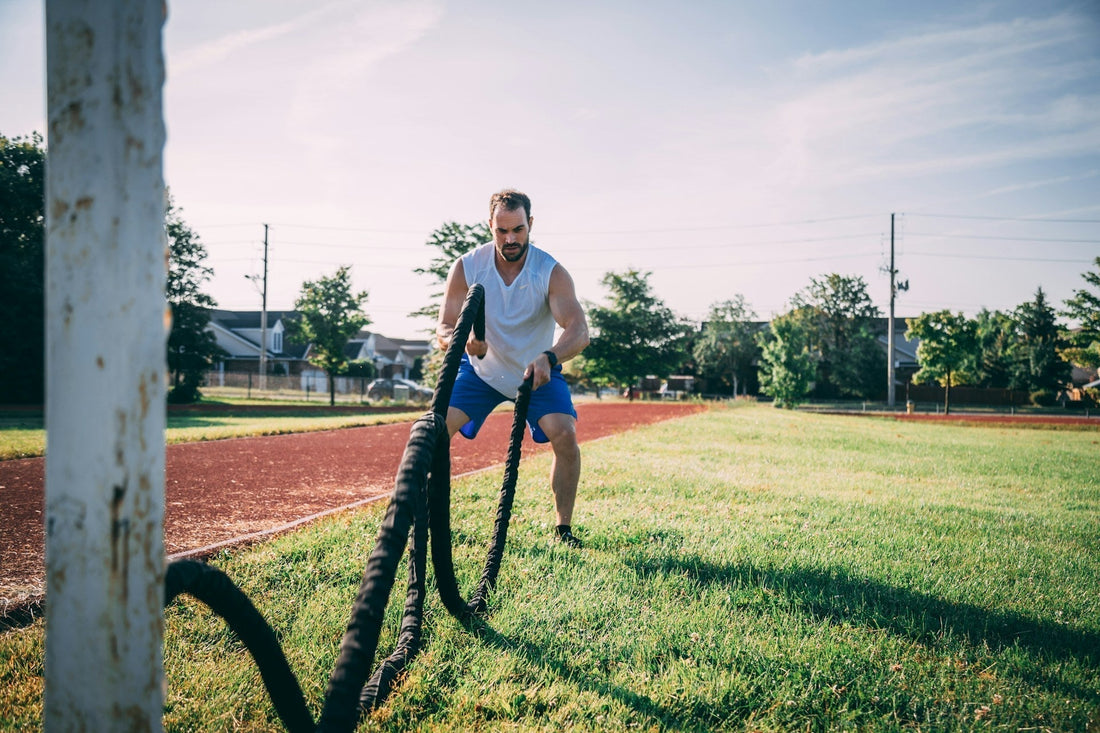Der Sommer ist die perfekte Jahreszeit, um im Freien aktiv zu sein, sei es beim Laufen, Radfahren oder Schwimmen. Doch mit den wärmeren Temperaturen steigt auch das Risiko eines Magnesiummangels, vor allem bei Sportlern, die durch den Schweiß große Mengen an Elektrolyten verlieren. Dieser Artikel zeigt die wichtigsten Anzeichen für Magnesiummangel bei Sportlern auf und bietet wissenschaftlich fundierte Strategien zur Vorbeugung, damit du dein Sommertraining in vollen Zügen genießen kannst.
Warum Magnesium für Sportler wichtig ist
Magnesium ist ein lebenswichtiger Mineralstoff, der an mehr als 300 enzymatischen Prozessen im Körper beteiligt ist. Für Sportlerinnen und Sportler spielt es eine entscheidende Rolle bei:
- Muskelkontraktion und -entspannung
- Energieproduktion in den Zellen
- Prävention von Muskelkrämpfen
- Schlafqualität und Erholung
- Ausgeglichenheit und Fokus auf das Nervensystem
Ohne ausreichend Magnesium kann der Körper nicht optimal funktionieren. Ein Mangel kann zu verminderter Leistung, langsamerer Erholung und einem höheren Verletzungsrisiko führen.
Die wichtigsten Anzeichen für Magnesiummangel bei Sportlern
Muskelkrämpfe und Zuckungen
Schmerzhafte Krämpfe während oder nach dem Training sind eines der deutlichsten Anzeichen für Magnesiummangel.
Geringere Ausdauer und schnellere Ermüdung
Ein Mangel kann den Energiestoffwechsel beeinträchtigen, was zu schnellerer Erschöpfung und geringerer Ausdauer führt.
Langsame Erholung
Wenn die Muskeln länger als gewöhnlich schmerzen, könnte zu wenig Magnesium der Grund dafür sein.
Höheres Verletzungsrisiko
Eine schlechte Muskel- und Nervenfunktion kann die Anfälligkeit für Zerrungen und Verletzungen erhöhen.
Stärkerer Muskelkater
Stärkerer Muskelkater nach dem Training wird oft mit einem Elektrolyt-Ungleichgewicht in Verbindung gebracht.
Müdigkeit und geringe Energie
Chronische Müdigkeit beim Sport kann ein Zeichen für einen unzureichenden Magnesiumspiegel sein.
Konzentrationsprobleme
Da Magnesium auch die Gehirnfunktion unterstützt, kann ein Mangel zu geistiger Müdigkeit und Konzentrationsschwierigkeiten führen.
Warum das Risiko im Sommer ansteigt
Sportlerinnen und Sportler verlieren mehr Elektrolyte, einschließlich Magnesium, wenn sie bei heißem Wetter stark schwitzen. Hochintensives Training in der Hitze kann den Magnesiumbedarf deutlich erhöhen. Wenn dieser erhöhte Bedarf nicht gedeckt wird, können im Sommer schneller Mangelerscheinungen auftreten als in kühleren Jahreszeiten.
Wie man Magnesiummangel vorbeugen kann
Iss magnesiumhaltige Lebensmittel
Nimm Blattgemüse, Nüsse, Samen, Vollkornprodukte, Avocados und Bananen in deine Ernährung auf.
Unterstützung der Flüssigkeitszufuhr
Trinke ausreichend Wasser und ziehe elektrolytreiche Getränke während langer oder intensiver Trainingseinheiten in Betracht. Dehydrierung beschleunigt den Magnesiumverlust.
Erholungsphasen planen
Ausreichend Ruhe und Schlaf sind wichtig für das Elektrolytgleichgewicht und die Muskelreparatur.
Bei Bedarf Nahrungsergänzungsmittel in Betracht ziehen
Für Sportler/innen mit sehr hohen Trainingsbelastungen kann eine Nahrungsergänzung sinnvoll sein. Bevor du Magnesiumpräparate einnimmst, solltest du einen Ernährungsexperten konsultieren.
Fazit
Magnesium ist ein Schlüsselfaktor für die sportliche Leistung, die Erholung und die allgemeine Gesundheit - vor allem in den heißen Sommermonaten, wenn der Schweißverlust höher ist. Wenn du auf deine Ernährung, Flüssigkeitszufuhr und Ruhepausen achtest, kannst du das Risiko eines Magnesiummangels deutlich verringern und die ganze Saison über deine beste Leistung bringen.
Quellen
National Institutes of Health: Magnesium Fact Sheet for Health Professionals
Nutrients 2015 - "Magnesium in Prävention und Therapie"
Current Opinion in Lipidology 2019 - "Dietary Magnesium and Cardiovascular Disease Risk"
Journal of the American College of Nutrition 2017 - "Magnesium and Exercise Performance"
Frontiers in Nutrition 2020 - "Sweat Mineral Losses and Replacement in Exercise"

